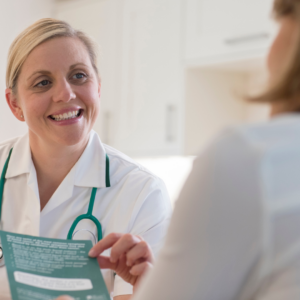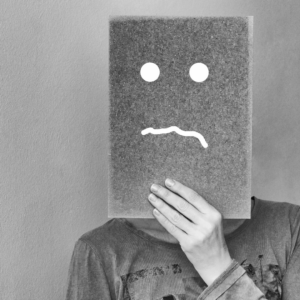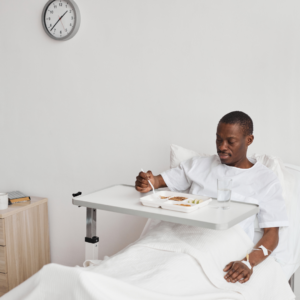In this week’s blog, Lauren McMillan and Austin Willett from Different Strokes, a charity supporting younger stroke survivors across the United Kingdom, highlight the experiences of young people living with stroke. Different Strokes supports people of working age through peer support and the majority of staff and volunteers have been personally affected by stroke. For the blog, Lauren and Austin asked their community of stroke survivors to identify the small everyday ways that healthcare professionals could have improved their care – here is what they had to say.
Language is Important
In the early days of recovery many survivors are told what they will never be able to do, in our experience many (not all) go on to exceed these expectations. No one knows what the future holds and writing anything off so early on in recovery can have a very negative impact. Where possible, be encouraging. Remember that the language you use will have an effect on our motivation and confidence. Tell us the truth but don’t forget to offer some hope too.
We Can Hear You
For survivors with communication difficulties, the isolation of suddenly being unable to express basic needs and opinions is horrifying. If you are supporting a patient with communication difficulties, don’t forget that we are in the room. Talk to us. Talk slowly, listen carefully and tell us if you can’t understand us. There may be other forms of communication that are better for us (writing/ signalling/using communication aids /drawing). Taking time to establish the best method of communication and ensuring the whole team knows this (and sticks to it) can transform how lonely and frustrated we feel.
See the Person, Not Just the patient
When your life is hurtled in to the unknown overnight and you find yourself spending weeks or months in hospital, the time professionals take to get to know us as people and not just as patients can transform our hospital experience – particularly in times when visiting is restricted , as you are at the centre of our days. We know you are juggling so much but just a few minutes of conversation can make us feel seen and in turn make our day.
Information
Many stroke survivors can’t recall being told where their stroke occurred and what that means, so If you can, provide specific information that is printed and shared with our loved ones too. This saves us the hardship of not knowing this basic but important information and therefore not being able to explain it to those around us. Early in recovery, survivors and their families are overloaded with information. Often this is delivered using medical terminology during rushed interactions, at a time of stress and overwhelm.
Please remember that we might not understand and that we might not remember important things you tell us. Do you have basic printed guidance for common issues such as fatigue or emotional lability? Are you providing leaflets for support organisations like Different Strokes?  Don’t Forget the Things You Can’t See
Don’t Forget the Things You Can’t See
The invisible side of stroke is often overlooked in the acute stages of care and rehabilitation. How are you addressing with your patients issues such as cognitive struggles, fatigue, depression, sex and relationships? Many survivors and their families feel ill-equipped to understand or cope with the spectrum of invisible effects, particularly after discharge from hospital. Are you informing patients of how to access relevant support for these issues? Can you equip us with greater clarity and strategies that can transform the trajectory of our recovery?
Pathways Based on Age
When you have a stroke at 20,40 or 60 your wants and needs are going to be very different. Most stroke pathways have the older patient in mind, often neglecting some key factors. Younger stroke survivors may be facing challenges financially, with raising a family or work and/or education. How is your department acknowledging and signposting younger survivors based on their unique circumstances? We know some trusts in the UK are doing amazing work with this – how can this be improved and integrated with the way that you work?
Lastly, thank you. So many people in our stroke community see you as guiding lights during the most frightening times of our lives. It is a heavy burden for you to bear but one that has immeasurable impact and for which we are incredibly grateful.
Ms Lauren McMillan is the Marketing Manager for Different Strokes and Mr Austin Willett is the Chief Executive Officer for Different Strokes (@diffstrokes). If you have patients who would benefit from support and information for younger stroke survivors get in touch with Different Strokes by emailing info@differentstrokes.co.uk or call 0345 130 7172. Find out more at www.differentstrokes.co.uk